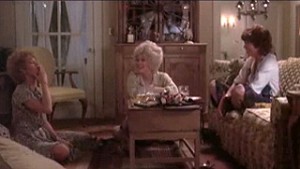At their best, conversations between female friends start worlds. We may not know quite what we’re thinking until the words start to form as we talk. We sense our friend listening in a way that changes how we hear our own speech, changes how we speak, changes what we feel capable of making happen.
Post some world-making conversation starters here.


"All my female students write about passive female characters," says Deb, my playwright friend. "I keep telling them, 'your character has to be active." When I first started to write, it was because the girlfriend of a rather friendly fellow tenant in my apartment building introduced me to a teacher, Tom Spanbauer. She was suffering in that class, suffering over her writing. When another student asked her how her writing was going, she said "I'm like Penelope, weaving in her loom in the daytime, unweaving at night." She said this ruefully. Penelope, the original passive female character, waiting for wily Odysseus to return. But what a powerful image--weaving your fabric, your text, in the daytime, unweaving at night. To me, not an image of futility, but of a quiet power. "A form of fire approaches the cretonnes of Penelope," writes Wallace Stevens, in one of his last poems, "whose mere savage presence animates the world in which she lives." I, too, suffer from the malaise of creating passive female characters and it is true that you can run into trouble as a storyteller with a passive main character, a person who is done unto. And yet I feel there is something very interesting about this position. Penelope has her own story. She knows things that Odysseus does not. This is what I share with my women friends--we have all sat at our looms and pulled our shuttled through the threads and written our own stories. Our stories aren't the public ones--the stories of the heroes. We have something more subversive to offer, more interesting. More sly. Wily Odysseus indeed.